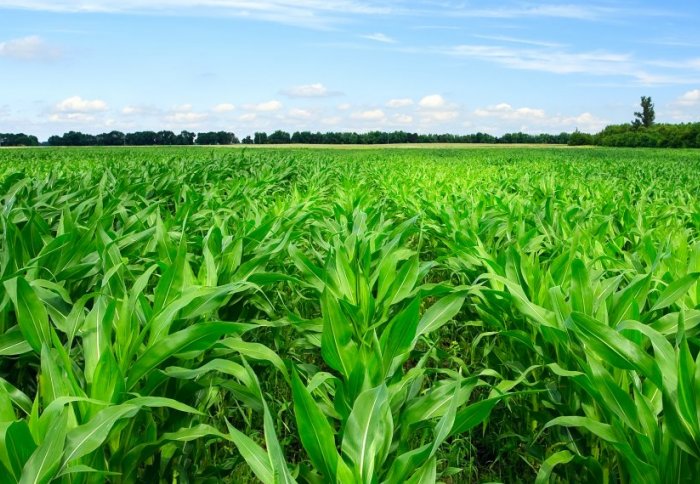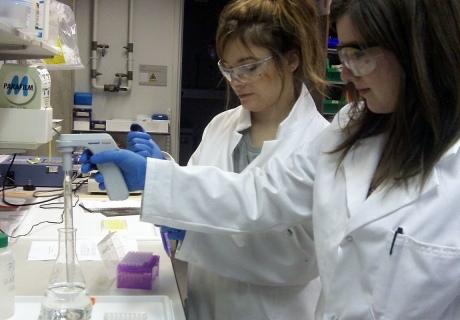Feeding the world: new PhDs aim to help increase sustainable food production

Thirteen PhD students will join Imperial in October to devise ways of making food production sustainable, in a new training initiative with industry.
With the world’s population estimated to grow to nine billion by 2050, demand for food is expected to rise by 50 per cent, putting pressure on farming and food production. Agricultural scientists and industry are striving to increase plateauing yields whilst making crop production environmentally sustainable and resilient to changes in the climate.
Students on the NexGenAgriChem doctoral training programme will work on a collection of complimentary research projects, which together will seek new ways of increasing crop yields. Projects will develop new technologies to explore how agrochemicals, including fertilisers and insecticides, are transported within plant cells. They will also look at how they interact once they reach their target.
By directly partnering with industry, our students will get the exciting opportunity to learn about the agrochemical innovation pipeline, turn their research into practical tools and bring plant potential to life
– Dr Laura Barter
Director of NexGenAgriChem
By probing a wide range of challenges it is hoped that the NexGenAgriChem researchers will develop novel and durable strategies to improve plant defences and ultimately drive and sustain increased crop production.
The training programme is being offered in partnership with Syngenta, a world-leading agrochemical company, and has been made possible through a €3.8 million European grant.
The new studentships are now open for application for EU and overseas students, with the programme beginning in October 2014 (full eligibility details are on the NexGenAgriChem web page).
Dr Laura Barter, Director of NexGenAgriChem from the Department of Chemistry at Imperial College London, said: “The programme is driven by a need to train a new generation of multidisciplinary researchers who can bring the skills of the physical scientist to the challenges of plant sciences research. By directly partnering with industry, our students will get the exciting opportunity to learn about the agrochemical innovation pipeline, turn their research into practical tools and bring plant potential to life, which could make a significant impact upon society”.

Plant chemical biology students investigating technologies for improving crop yield
Throughout the three-year programme, students will be co-supervised by researchers at Syngenta. They will also take part in industry site visits and professional placements, where they will gain valuable skills in wide-ranging business areas such as patent law, science journalism and consulting.
Stuart J. Dunbar, Lead Scientific Expert in Bioscience from Syngenta said:
“This is an exciting programme for Syngenta. It will bring Syngenta scientists together with the leading chemical biology academic researchers at Imperial College. The partnership provides unique training for the students addressing the challenges we face in feeding the world’s increasing population with less resources.”
Article text (excluding photos or graphics) © Imperial College London.
Photos and graphics subject to third party copyright used with permission or © Imperial College London.
Reporter
Press Office
Communications and Public Affairs
- Email: press.office@imperial.ac.uk
